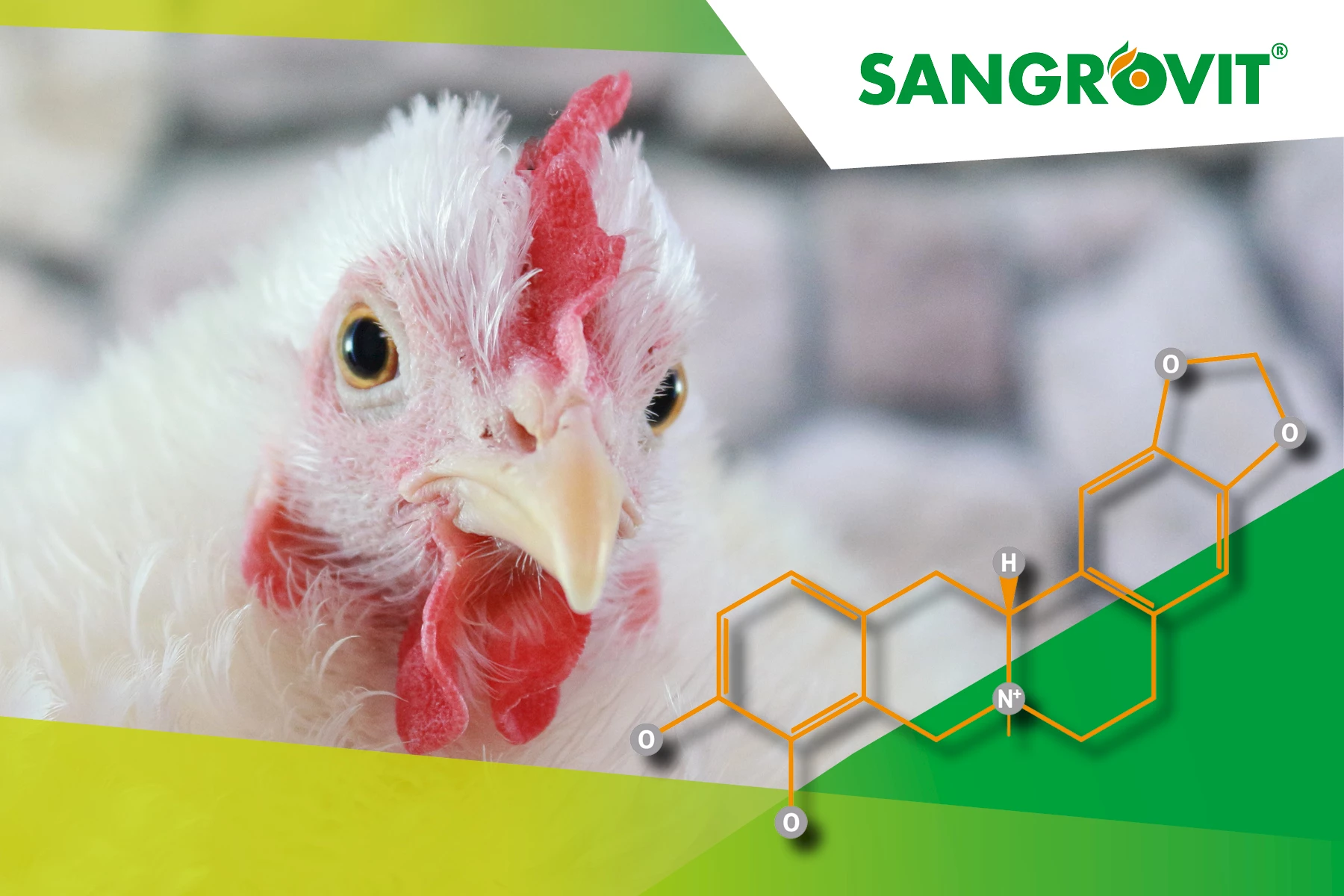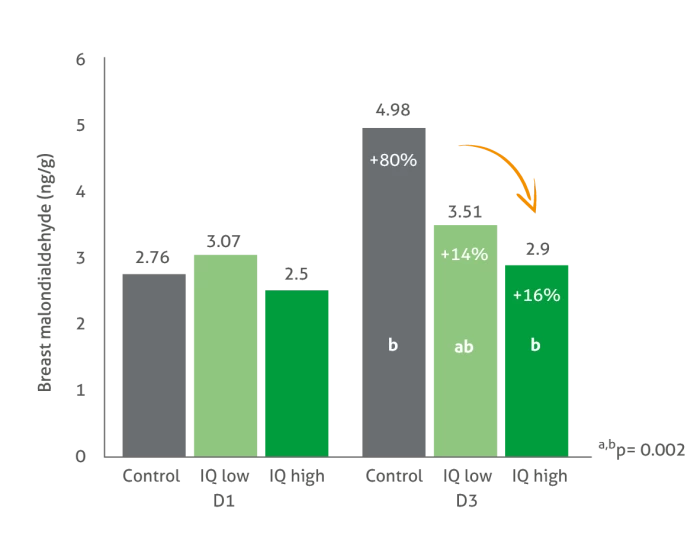
The quality of a livestock carcass is determined by multiple attributes, including lean muscle mass, higher meat yields, fat cover, marbling, and overall meat quality indicators such as tenderness, flavour, and oxidative status. These characteristics influence consumer preferences, processing efficiency, product shelf life, and market value.
Improving carcass yield and quality is a multifaceted challenge that integrates genetics, management, and nutritional strategies aimed at optimising growth performance while ensuring animal welfare and health. The latter is particularly important when considering the utilisation of edible by-products such as kidneys, liver, and the intestinal tract. Organs affected by parasites, infections, or abnormalities may lead to condemnation or downgrading, reducing their economic value.
In this context, strengthening the animal’s immune defense and resilience should be a priority. Various physiological mechanisms influence carcass characteristics. For instance, chronic or excessive stress and inflammation can impair growth efficiency, reduce lean muscle deposition, increase fat accumulation, and compromise both organ health and meat quality.
A new generation of plant-derived isoquinoline alkaloids (IQs) with optimised levels and improved combination of active key-alkaloids (Sangrovit® product line) has already demonstrated positive impacts on carcass outcomes and quality. These compounds exhibit a broad range of biological effects, most notably anti-inflammatory properties.
IQs positively influence gastrointestinal health by improving gut integrity and nutrient utilisation, thereby enhancing overall carcass yield and the proportion of valuable cuts.
These physiological improvements lead to more efficient feed conversion, lower mortality rates, and greater lean tissue deposition relative to fat, a key determinant of carcass value.
Moreover, IQs enhance the antioxidant capacity, contributing to improved meat quality, muscle cell function, and shelf life. In intensive production systems, chronic inflammation and oxidative stress are known to suppress the mTOR pathway, which limits muscle growth and carcass quality. A well-known factor in this pathway is the glucocorticoid hormone cortisol, which has repeatedly been shown to be reduced by dietary IQ supplementation in trials across multiple species. Specific in-feed IQs have been further reported to upregulate genes associated with the mTOR pathway, supporting protein accretion and further enhancing growth performance.
At slaughter, both carcass yield and the proportion of high-value cuts serve as critical economic indicators. The benefits of IQs in this regard were clearly demonstrated in a trial conducted at Mississippi State University, USA. The study used a challenge model involving a live coccidiosis vaccine administered on days 0, 14, and 42, with birds monitored through day 56. Broilers fed with IQs exhibited significantly lower mortality rates (Figure 1), higher feed intake (control: 109.2 g/bird/day; IQ low: 116.3 g/bird/day; IQ high: 117.5 g/bird/day; p = 0.0015), and increased leg yield relative to live weight (Figure 2).
Additional benefits were confirmed in a trial conducted at the Federal Research Center for Poultry Science in Kitzingen, Germany, involving 2,800 Ross 308 broilers. Birds supplemented with IQs showed a significant increase in breast muscle percentage, a key trait in markets that prioritise lean and tender meat (Figure 3). These gains were accompanied by significantly improved feed-to-gain efficiency (control: 1.50; IQ group: 1.48; p ≤ 0.05), and lower liver scores, indicating improved organ health. These physiological enhancements contribute directly to better production outcomes and economic efficiency.




Malondialdehyde (MDA) is a widely used biomarker of lipid peroxidation and serves as a quality indicator for meat and fat products, as well as a proxy for the animal’s oxidative status. MDA is a highly reactive and toxic molecule, capable of disrupting numerous physiological processes. Elevated levels have been observed in various pathological conditions and are detrimental to meat quality and shelf life.
To assess how oxidative stress may carry over after slaughter, a scientific trial was conducted at Aristotle University of Thessaloniki, Greece. Researchers examined lipid oxidation in raw breast meat (Pectoralis major) during refrigerated storage at 4°C. Subsamples were analysed on days one and three. Birds supplemented with IQs exhibited only moderate oxidative degradation, suggesting enhanced antioxidant protection or lower susceptibility to oxidation compared to the control group (Figure 4). Additionally, IQ-fed birds had higher breast muscle protein content (control: 23.9%; IQ low: 24.8%; IQ high: 24.1%) and reduced breast fat content (control: 1.75%; IQ low: 1.47%; IQ high: 1.58%), indicating a shift towards leaner, higher quality meat cuts.
To demonstrate the practical relevance of IQ supplementation, a case study from a commercial farm in South Africa is particularly noteworthy. A total of 502,000 broilers of various breeds were monitored under IQ supplementation and compared to a control group. The results showed a substantial increase in the European Production Efficiency Factor (EPEF), with the IQ group reaching 377 versus 331 in the control group. There was also a one percent reduction in carcass condemnations due to injury, disease, or contamination (control: 2.07%; IQ group: 1.02%).
These improvements significantly enhanced overall commercial performance. In addition, feedback from a large Brazilian integration reported more efficient slaughterhouse operations, with fewer carcass and by-product rejections. This further reinforces the practical value and economic impact of IQ supplementation in large-scale production systems.
Effective management of inflammation, stress, and muscle protein metabolism, particularly through nutritional and gut health strategies, can substantially improve carcass yield, meat quality, and economic returns in modern livestock systems. This extends beyond primary meat cuts to include edible by-products, supporting broader goals of animal welfare, sustainability, and production efficiency.
As global production trends move toward natural, health-focused solutions, incorporating plant-derived feed additives like isoquinoline alkaloids presents a promising strategy to meet consumer demand for naturally produced, high-quality meat in modern livestock systems.

Holding a Master’s degree in Livestock Science from Justus Liebig University Giessen, Germany, Julia Schmitt brings 17 years of science-driven experience in the phytogenic feed additive industry. Her work is focused on advancing gut health, elucidating anti-inflammatory mechanisms, and promoting animal welfare and stress reduction through natural feed solutions.
Contact our experts or send us a message. We will contact you as soon as possible.